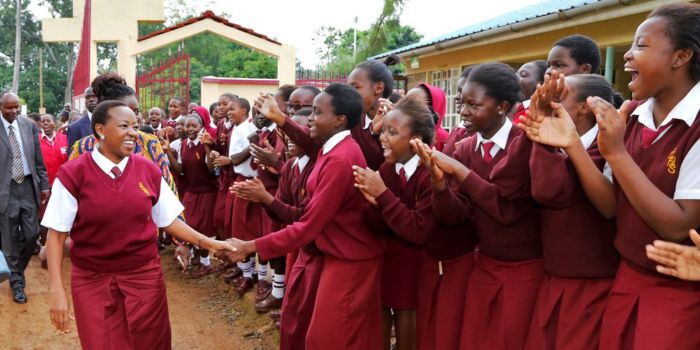Echoes of War: Playwright Malala Decries Intimidation, Condemns Rachel Ruto’s Silence on Butere Girls Drama Festival Incident
Cleophas Malala, former UDA Secretary General and playwright of Echoes of War, has voiced strong criticism toward First Lady Rachel Ruto over her silence following the standoff at the National Drama Festivals in Nakuru.
The controversy arose after Butere Girls High School students were barred from performing the play, an incident that has since attracted national attention. Malala questioned why the First Lady, an alumna of Butere Girls and patron of the school’s alumni association, had not intervened or commented on the matter.
He found her silence troubling, especially given her close ties to the institution, and expressed disappointment that she had not stood up for the students during what he described as an unjust episode.
During a Sunday night appearance on Citizen TV, Malala accused President William Ruto’s administration of deploying police officers to intimidate attendees at the event. He described this as a misuse of authority and labeled the actions as dictatorial. He asserted that if he were part of the government, he would urge the President to act like a father figure to the affected students rather than using coercion and threats against them.
Malala expressed that he would first appeal to Mama Rachel Ruto to intervene, considering her history with the school. He stressed that it was unacceptable for anyone, particularly the First Lady, to remain silent while students faced teargas and intimidation for expressing social concerns through drama.
Echoes of War: A Voice of the Youth
Malala defended the content of Echoes of War, stating that the issues portrayed in the play reflect real-life social and political problems faced by Kenyans. He challenged the state’s characterization of the cast as mere children, insisting that most were nearing voting age and fully aware of the nation’s affairs. He contended that dismissing them as too young to understand or participate in national discourse was misleading and dangerous.
He posed a rhetorical question directed at Transport Cabinet Secretary Kipchumba Murkomen, asking if those same students—who would be eligible to vote by 2027—would still be referred to as children by the government. He emphasized that the youth were observant and actively engaged in societal matters, and deserved to be heard.
Read Also: MPs to Repeal TSC Act, KUPPET Push for Teacher Representation
Recounting his ordeal during the standoff, Malala revealed that after being apprehended by police officers in Nakuru, he was taken to an unidentified location in the bush. He was left alone in a vehicle for several hours, a situation he described as deeply distressing.
According to him, the officers vanished around midnight, abandoning him in the Subaru, which left him in a state of fear and uncertainty throughout the night. He described the experience as torturous, stating that it left him emotionally shaken and concerned for his safety.
Malala’s remarks underscore growing tensions surrounding freedom of expression and the role of leadership in safeguarding artistic voices, especially those of the youth. His pointed critique of both the First Lady and the administration adds to the ongoing debate about the treatment of students and the space for political commentary in the arts.
Echoes of War: Playwright Malala Decries Intimidation, Condemns Rachel Ruto’s Silence on Butere Girls Drama Festival Incident.
Follow Teachers Updates on Facebook, LinkedIn, X (Twitter), WhatsApp, Telegram, and Instagram. Get in touch with our editors at [email protected].



Discussion about this post